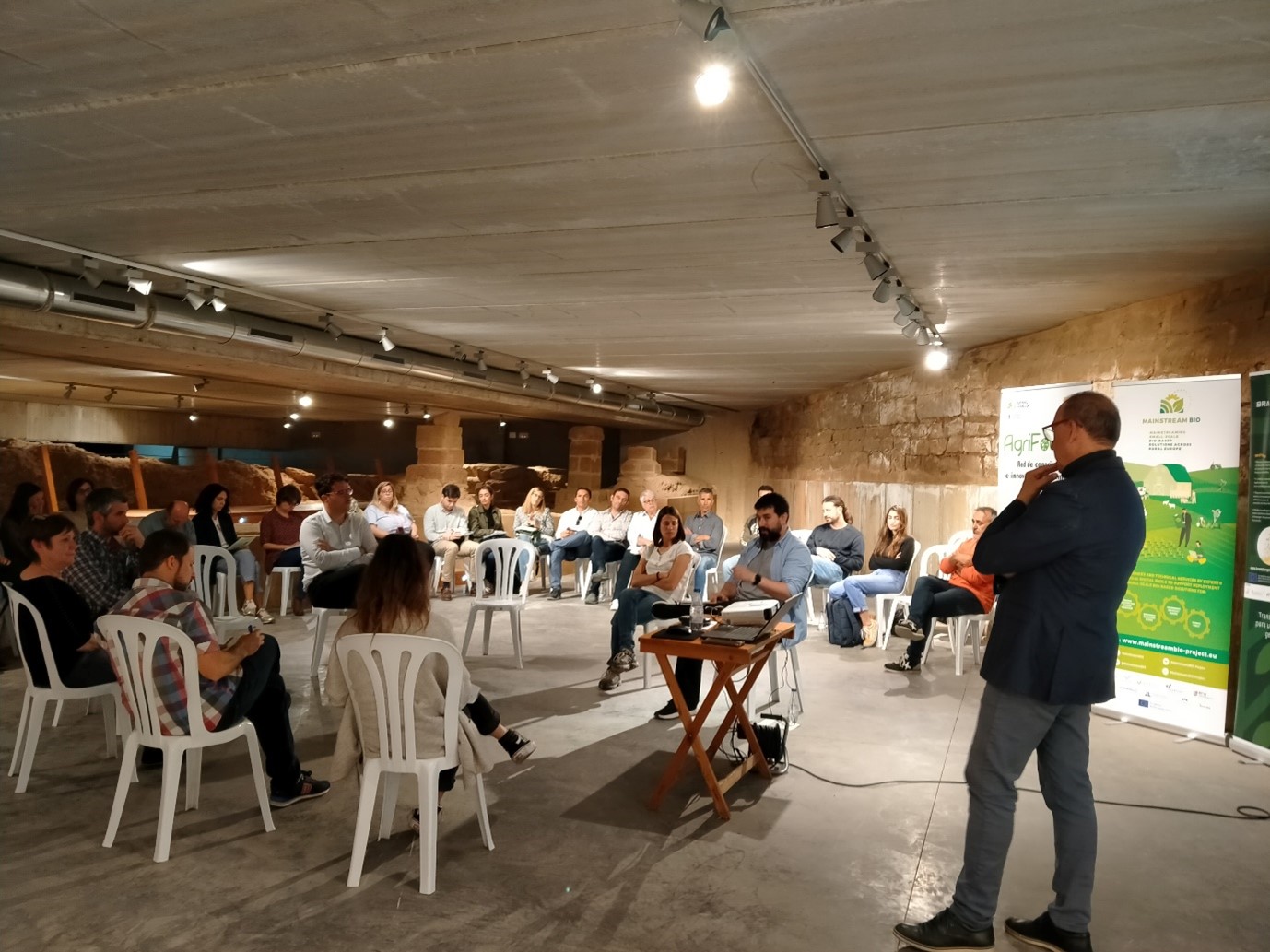More than 50 key agents from La Rioja, Navarra, Aragon and Catalonia have met to discuss and set a milestone in inter-territorial collaboration to promote local actions to boost the use of agricultural, livestock and forestry waste and resources.
Everything starts from a reality that is as simple as it is overwhelming: the Ebro Valley is one of the geographical areas of Spain with the greatest agricultural and livestock activity, accounting for 30% of agricultural land and 30% of meat production, while at the same time, it has important forestry resources. We are talking about millions of tonnes of resources, in many cases agricultural, agro-industrial or livestock by-products, which do not find a high-value end use or are simply discarded.
Science And Innovation In Ebro Valley And Rural Contexts
Meanwhile, science and innovation already provide available routes, but they require vision and decision to face the investment and the risk of “being the first”, of innovating. Large business groups are already taking steps, pursuing their decarbonisation agenda and taking the opportunity to turn by-products and costs into opportunity and value. But what about the local and rural context? In addition to the difficulties already involved in innovation, there are those of scale, access to technology, investment capacity, and availability of advice and personnel to start up new innovative businesses.
Innovative Business Models Discussions In Ebro Valley
All of these issues were discussed in Alcarrás (Lleida) on Friday 21 April, in a dialogue between representatives of the primary economic sector, science, the regional administration and society. The agents reached a clear common vision of the enormous opportunity and the need to add value to resources and by-products of biological origin through innovative models, and new bio-based solutions that are applicable, profitable, and circular and generate new products and services.
The meeting was inaugurated in the auditorium of the Lleida Provincial Council, with the intervention of its president, Joan Talarn Gilabert, who in addition to highlighting the value of the meeting, urged that this be a starting point for future forums and inter-territorial collaborations.
Subsequently, up to five initiatives took the floor to show how they are working to facilitate the advancement of the rural bioeconomy by acting on different enabling elements.
- Lleida Provincial Council, emphasises the importance of the open and collaborative innovation model for the promotion of the bioeconomy as a vector of territorial competitive specialisation (Proyecto Green&Circular).
- The University of Lleida, through the necessary training for a new generation of entrepreneurs in agricultural and livestock circular economy (Proyecto Erasmus+ TANGO).
- AVEBIOM – Spanish Biomass Association, highlighting the role of knowledge exchange networks and the creation of a European Rural Bioeconomy Network (BRANCHES y BIORURAL).
- Centro de Innovación en Bioeconomía Rural – CITA Teruel, headquarters of the Centre for Agri-Food Research and Technology of Aragon (CITA), has shared its implementation of participatory dialogue to generate solutions and pilots through the AgriFoodTe Teruel AgriFood Knowledge and Innovation Network (AKIS).
- INNOVARUM stresses the need to encourage the promotion of small-scale solutions that favour the deployment of the bioeconomy in rural areas (MainstreamBIO project).
The voices were multiple and plural, but among the various points of action, the richness of sharing experiences to replicate models and territorial policies that have borne fruit in other contexts, to accelerate the challenge of putting circularity into practice, framed in rural areas, close to home, and through innovation and value, was highlighted. And for this, the Ebro Valley corridor is a rich and diverse territorial framework in which to speed up this transfer.
This message reinforces the conclusions of the previous workshop held in Zaragoza on 26 April 2022, in which multiple agents shared dialogue, including several of the co-organisers and participants of this second meeting, such as the Patronat de Promoció Econòmica de la Diputació de Lleida, the Union of Farmers and Stockbreeders of Navarre – UAGN, the Federation of Agri-food Cooperatives of Aragon, the CENER and CIRCE technology centres, the Centre for Innovation in Rural Bioeconomy of Teruel, the University of Lleida and AVEBIOM, the Spanish Biomass Association.
Previous posts
#HacemosLaInnovaciónRealidad
¿Tienes una idea para un proyecto? ¿Buscas un socio de comunicación o para el desarrollo de modelos de negocio innovadores? ¿Tienes alguna otra iniciativa innovadora en mente?







